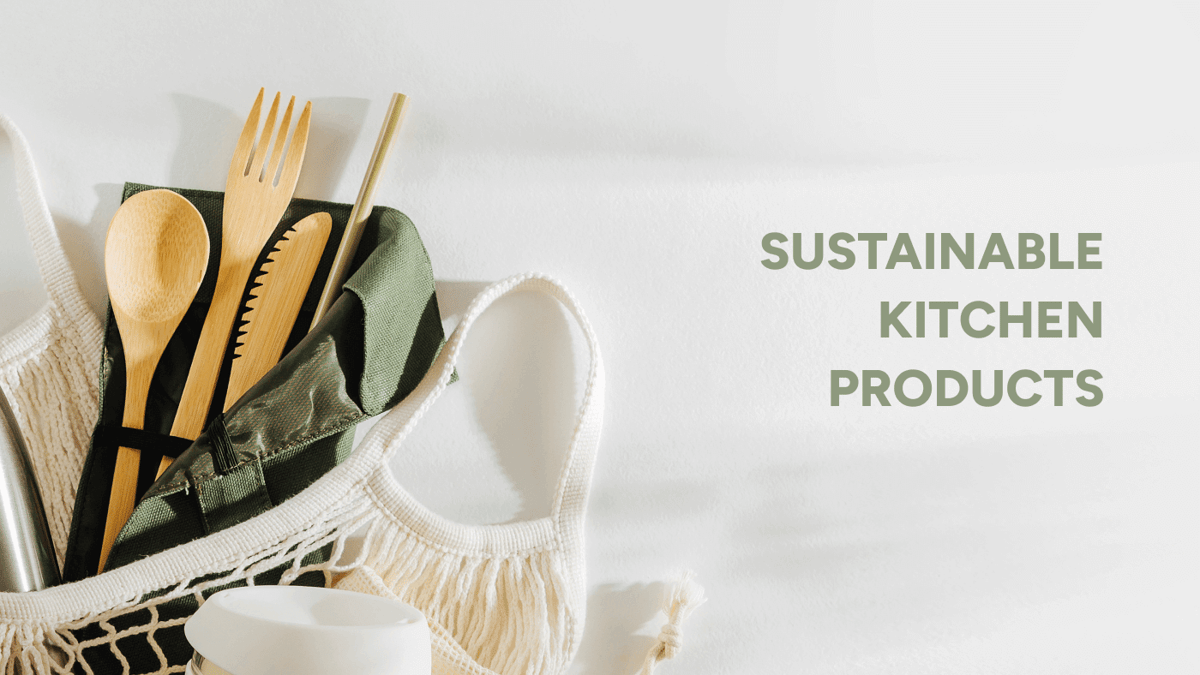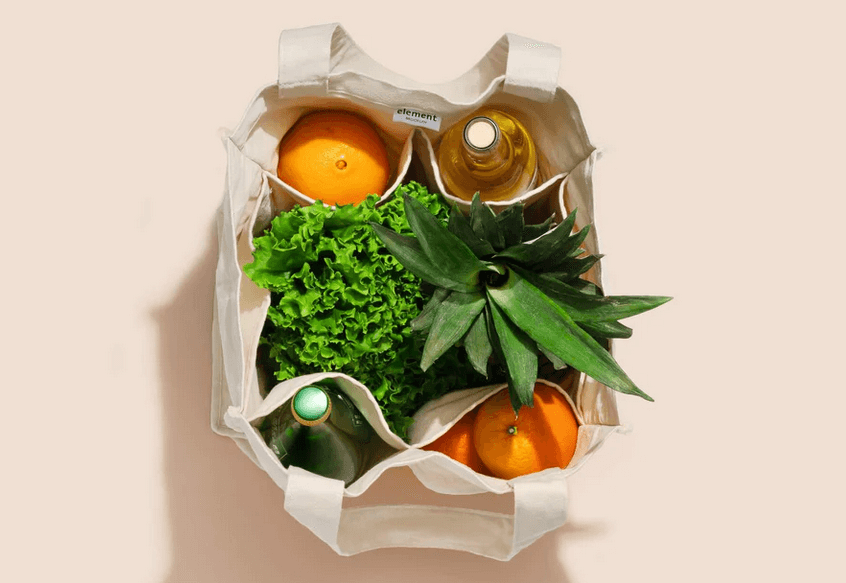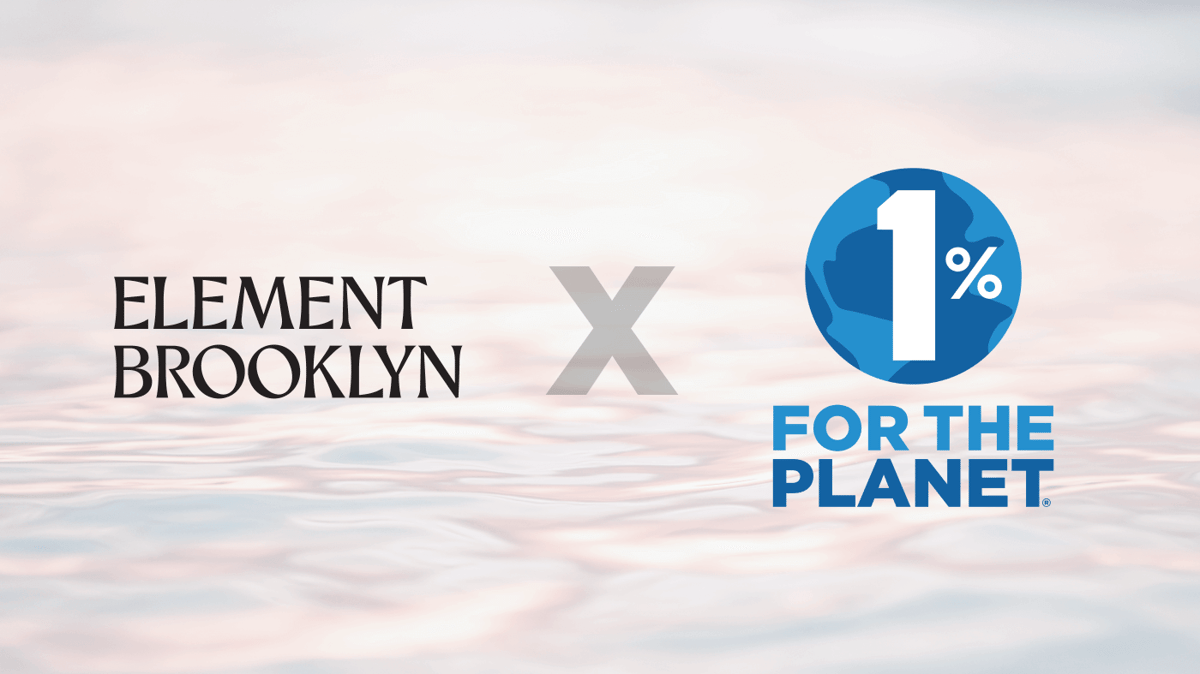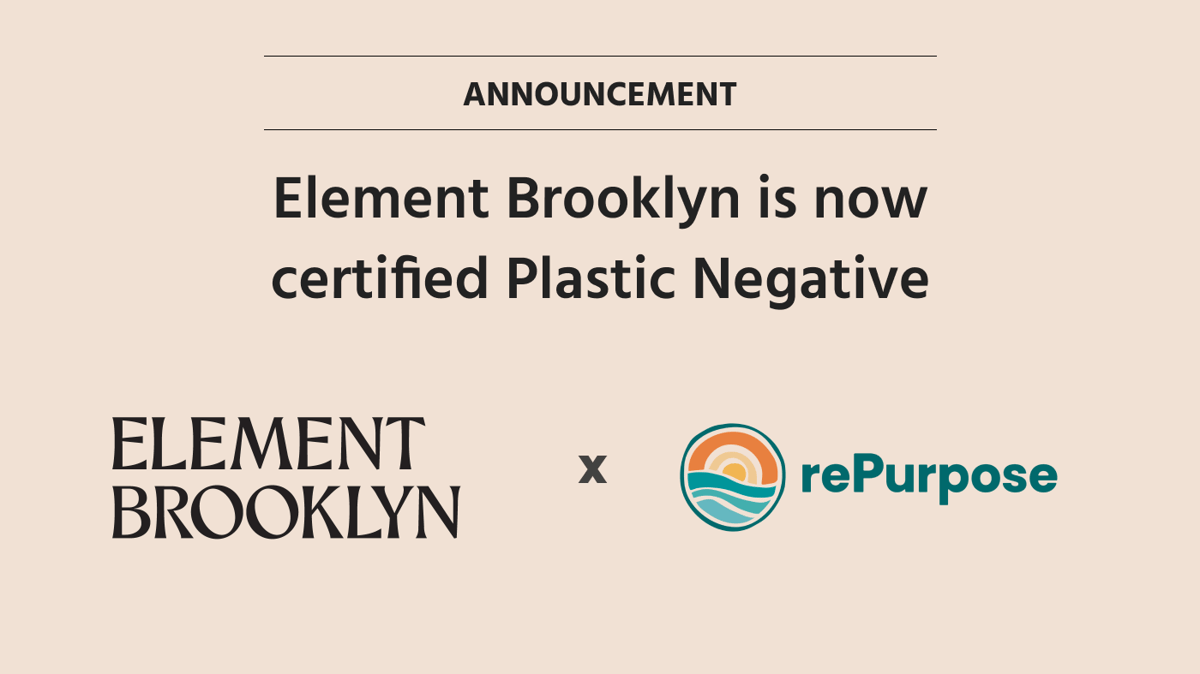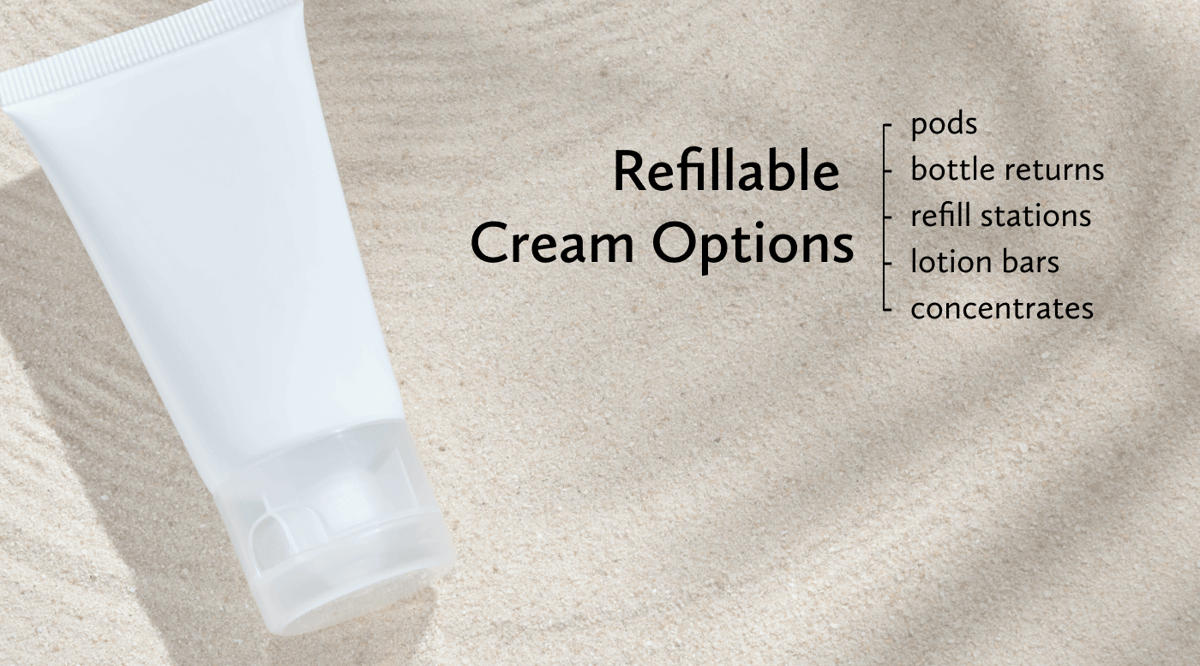In just about every facet of our lives it is possible to be more sustainable and environmentally friendly by reducing waste, and using materials and products that are less harmful to the planet and ourselves. In the kitchen we use a wide range of different products for cooking, cleaning, disposal and storage. Many of these contain harmful chemicals and significant amounts of plastic, both of which can be washed down the drain and into the water supply. Abrasive chemicals can also get in the air or in food.
Luckily, an increasing number of companies are selling kitchen products that are designed for sustainability and use benign, natural materials. Some are reusable cleaning products that reduce plastic-use and replace industrial cleaning agents with natural ones. Others replace single-use items like paper towels and produce bags with reusable ones. Most are technological advancements but a few are simply a return to the durable products that were commonplace before the rise of plastic.
Here are a range of environmentally friendly products for cleaning, cooking, storage and more:
- Surface cleaners
- Paper towel alternatives
- Reusable mop sweeper pads
- Trash bag alternatives
- Plant-based sponges
- Nontoxic nonstick pans
Surface cleaners
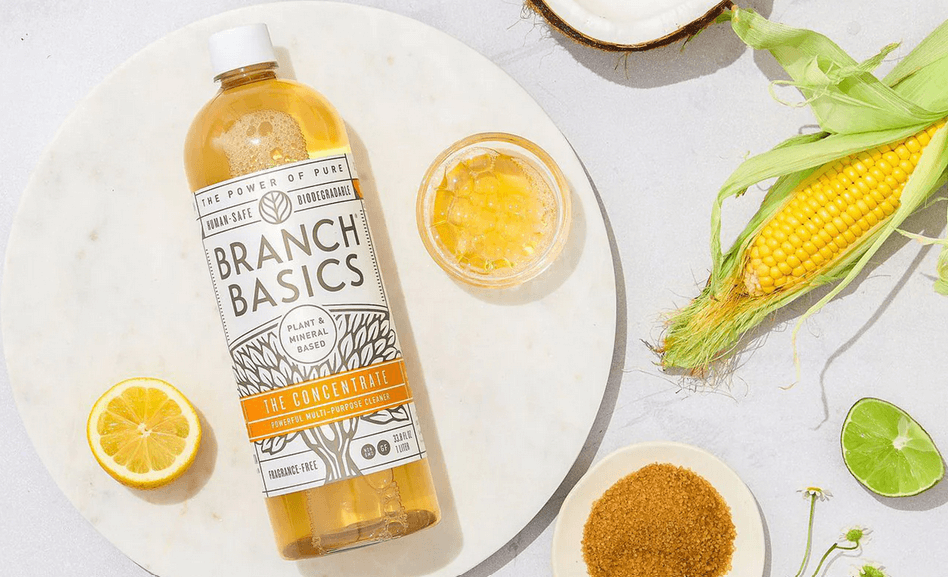
Branch Basics offers surface cleaning concentrates that pack a lot into one bottle. Source: Branch Basics
Traditional surface cleaning products use industrial chemicals and single-use plastic packaging. Several companies have created natural surface cleaners that do a great job without using harmful chemicals like parabens, phosphates, and ammonia.
Blueland sells plastic-free tablets that are mixed with water to create a powerful natural cleaner, allowing customers to reuse the same glass or plastic spray bottle over and over again.There are also several other options for more sustainable surface cleaners: vegan body and home care company No Tox Life makes dish soap bars, and Branch Basics offers liquid dish soap concentrates.
Paper towel alternatives
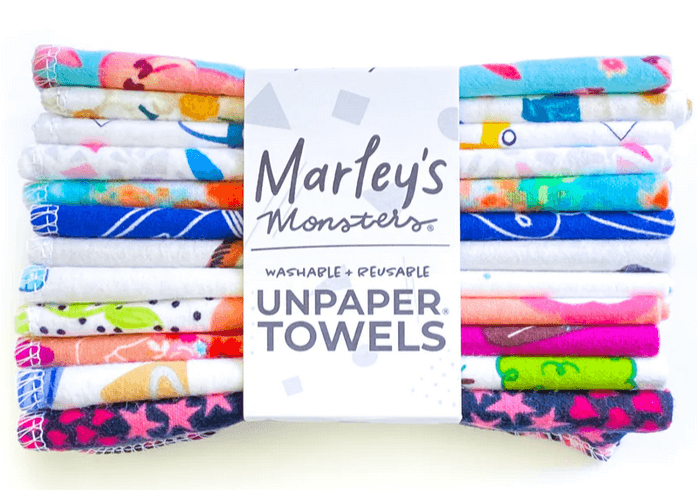
Marley's Monsters makes reusable paper towel alternatives. Source: Marley's Monsters
Paper towels are biodegradable, but they still create significant environmental problems. Millions of metric tons of carbon dioxide are released into the environment every year through paper towel production, and the process uses a whole lot of trees and water. Further, traditional paper towels release methane when they break down, and they normally come in plastic packaging. Several companies have created paper towel alternatives that are reusable or produced from bamboo.
Marley’s Monsters, for example, makes reusable “UNpaper towels,” that are made from 100% cotton flannel. They are designed to stick together and can be rolled on a tube, just like traditional paper towels. They function just like normal paper towels but can be washed and used over and over again.
Reusable mop sweeper pads
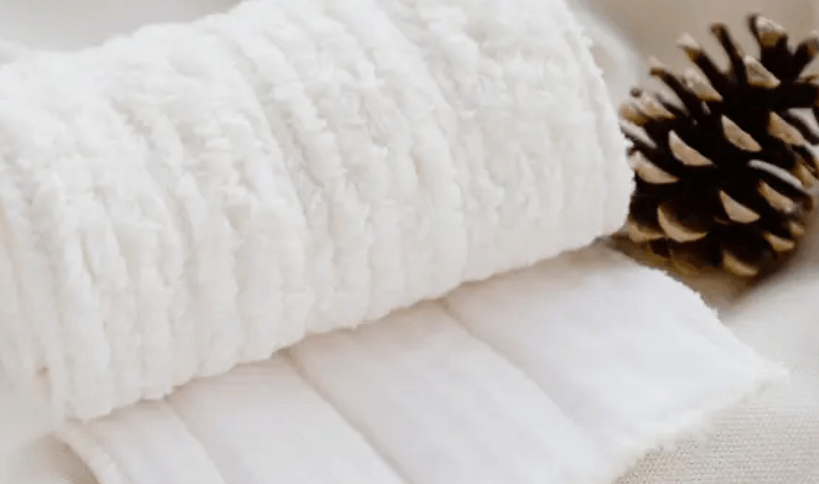
Cotton sweeper pads from Juniper Seed Mercantile are a great alternative to single-use mop pads. Source: Juniper Seed Mercantile
Mop pads are a convenient alternative to breaking out the mop and bucket. However, the pads are used once and then thrown away for good. They also usually come loaded with harmful chemicals that can end up in the water supply or soil. Several companies have created more sustainable versions that utilize reusable pads which aren’t pre-loaded with industrial chemicals. Juniper Seed Mercantile makes reusable cloth mop pads that work dry or with cleaner and can be washed and reused indefinitely.
Trash bag alternatives
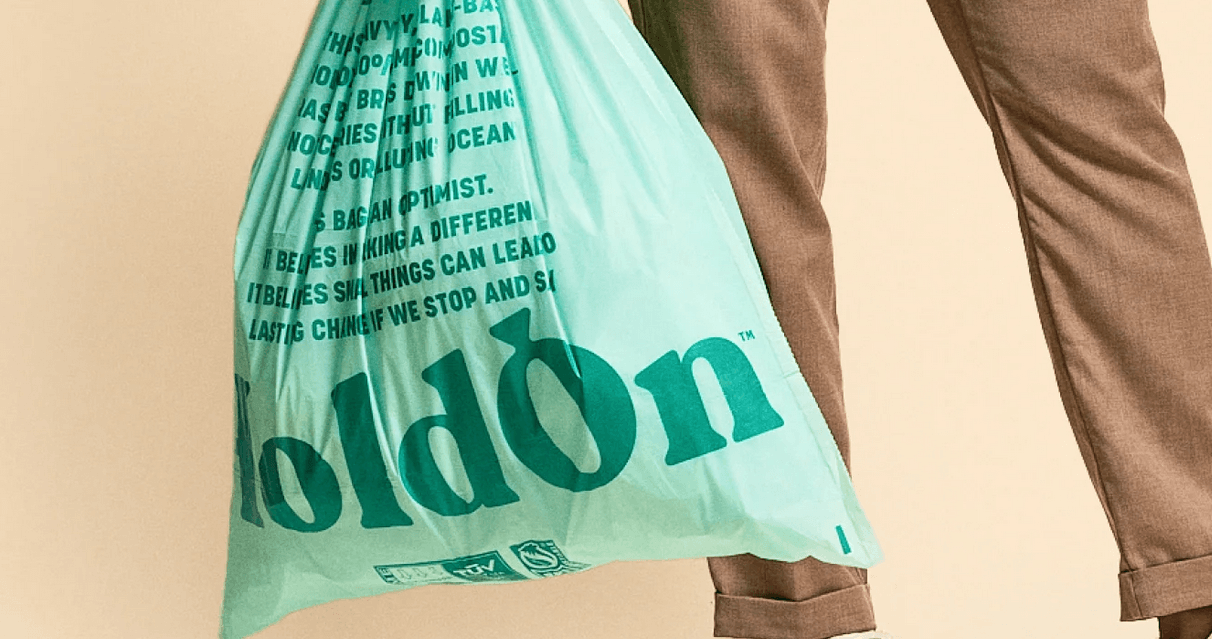
HoldOn makes trash bags from biodegradable materials. Source: HoldOn
Plastic trash bags add an extra layer of plastic waste to garbage dumps and make it more difficult for the biodegradable waste they contain to break down. A few alternatives have been invented, including compostable bags. These bags are made of natural plant starch and do not produce toxic material when breaking down. The downside is they don’t usually decompose as well in trash dumps as they would in compost bins. However, since they don’t use plastic, they are still a better alternative than traditional trash bags. Retailer HoldOn makes heavy duty plant-based trash and storage bags. They also offer smaller compostable zipseal sandwich bags.
Plant-based sponges
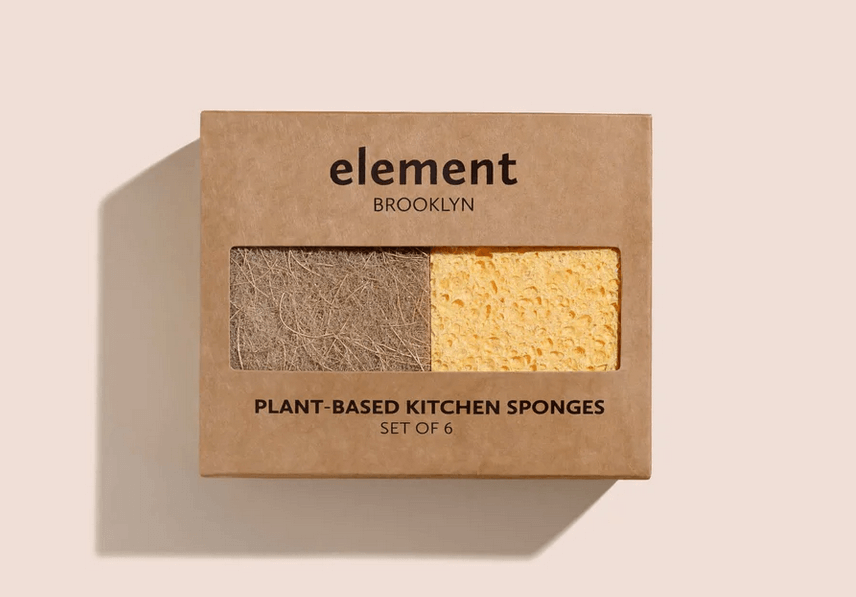
Element Brooklyn sponges are 100% plant-based and can even be cleaned in the dishwasher.
Normal sponges create a plethora of environmental issues: they shed microplastics into the water supply as they’re used to clean, they aren’t easily recycled, and they rapidly wear out. Several companies now sell alternative sponges made partly or entirely from biodegradable materials like wood pulp, plant cellulose, vines and more. Here at Element Brooklyn, we offer 100% plant-based sponges that utilize coconut fiber on one side and plant cellulose on the other. They are very durable and can even be put in a dishwasher.
Reusable food bags
Element Brooklyn totes feature extra pockets for carrying produce and more.
It goes without saying that a ton of single-use plastic is used in purchasing produce. Some stores offer paper bags, which is a good step in the right direction, but paper bags are still single-use. A great alternative is to bring a reusable produce bag to grocery stores, farmers markets, and vendors.
Retailer Colony Co. sells reusable fabric produce bags that can be used at shops or to store food at home. The bags are designed to be washed and reused. Element Brooklyn offers Ultimate Shopping Totes that are made from durable canvas and have several interior pockets for carrying items like glass bottles.
Linen bread bags are another option for using less plastic. Many people store their bread in a single-use plastic bag to keep it fresh, which ends up in a landfill and can shed microplastics into food. Rough Linen makes bread bags in a variety of colors and two sizes.
Nontoxic nonstick pans
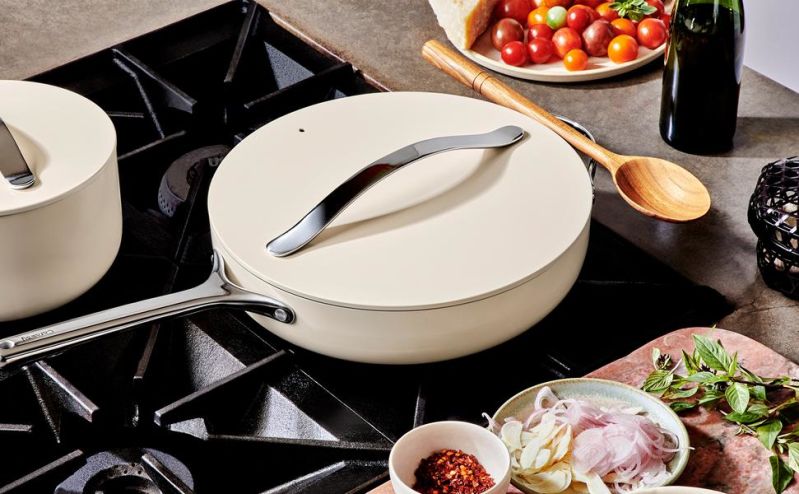
Caraway ceramic cookware is high quality and comes without nonstick toxins. Source: Caraway
Traditional nonstick pans are made with PFAs, commonly known as forever chemicals, that can cause cancer and persist in the body for decades. Further, they can enter the environment and the water supply. The coating is easily scratched by metal utensil or abrasive sponges and can flake into food. Further, the coating makes it difficult to recycle the metal pans. Instead, customers can look to better options for cookware like ceramic, stainless steel and enameled cast iron. Caraway makes a range of ceramic cookware that does without the toxic chemicals. One drawback is that nontoxic pans are often more expensive than toxic ones.
Last thoughts
These are only a few of the numerous ways that you can decrease your environmental footprint in the kitchen and beyond. Scores of companies and individuals are working to create solutions to replace harmful disposable products with ones that are much more environmentally friendly. Some of these products are more expensive than their traditional counterparts but many are similarly priced or cheaper due to less intense manufacturing processes and materials. Innovative, sustainable products continue to advance, allowing us to personally live healthier lives while reducing the level of plastic and toxins that we put into nature.
